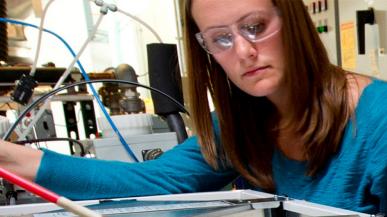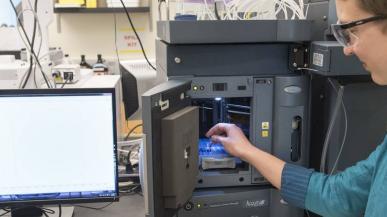WHAT YOU’LL LEARN
- Core ideas in calculus and linear algebra, as well as a breadth or depth of understanding in other mathematical subject areas
- How to write clear and correct mathematical proofs
- Preparations for advanced study in any of a range of pure or applied mathematical study areas
WHO YOU COULD BE
- Mathematics teacher
- Consultant
- Financial representative
- Technical services engineer
- Researcher/research assistant
OVERVIEW
How does the human brain work? What does the future hold for our climate? When is it useful to distinguish between different levels of infinity?
Mathematics provides the foundation required to answer some of the most complex questions of our time. Mathematicians design the models that enable us to understand and improve the structure of everything from transportation networks to physical processes. Whether or not practical applications are foreseen, mathematicians revel in exploring the structure and beauty of abstract patterns and logical relationships.
To equip students with the conceptual knowledge to tackle such problems, the curriculum stresses the development of problem-solving techniques, logical reasoning, and data analysis. Special emphasis is placed on the value of abstraction: the process of simplifying a messy real-world problem to focus on the relevant details.





















